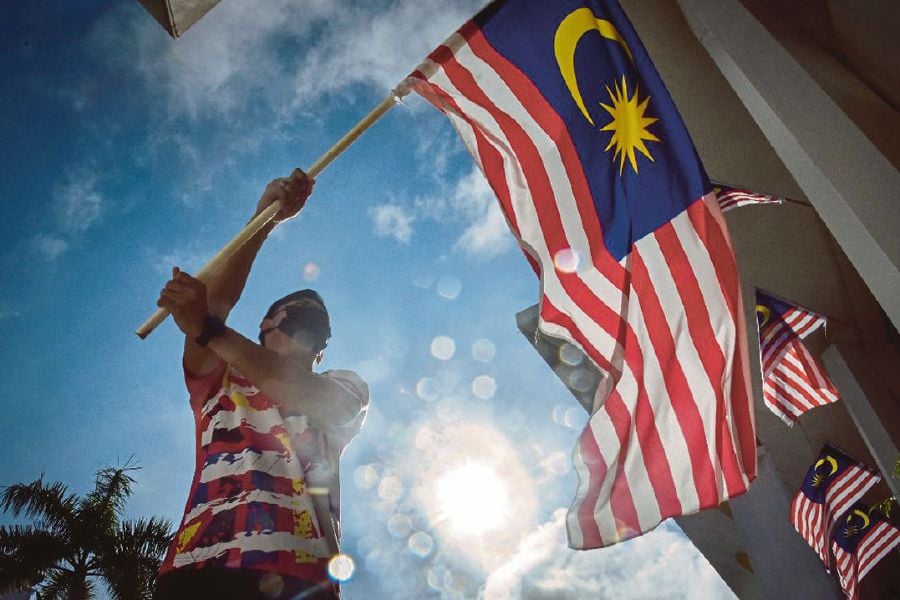IT was freezing but I had to get through the snow to reach my class at Johns Hopkins University in Baltimore, Maryland, the United States.
Fridays were special to me there, especially during my freshman year in 1998, because I wore Baju Melayu.
I also put on thick jackets, gloves, winter shoes and inner thermal pants during winter
Baju Melayu is common in Malaysia. Malays wear it to events or celebrations like the two Eids and weddings.
Some also wear it to pray at mosques and during Friday prayers. It can also be worn by other Malaysians and tourists.
However, wearing a Baju Melayu in Baltimore regardless of seasons is peculiar.
I guess I had an identity crisis. During orientation week, I met an Anglo-American who asked me if I was Chinese. I told him I am a Malay from Malaysia.
He also asked whether Malaysians lived on trees.
The Internet was in its adolescence then. So he might not have been well informed about Malaysia.
I enlightened him with what my seniors told me to say if this happened.
A cafeteria staff member in our freshmen dormitory once asked me if I was from Samoa.
Although her ancestors and mine might be connected thousands of years ago through the Malayo-Polynesian or Austronesian ancestry, I was a bit apprehensive to reply that I am a Malaysian due to her enthusiasm.
I smiled, nodded and moved on.
Turkish was another assumption that a Turk delivery man said of me. I replied that I am a fellow Muslim from Malaysia and that Malay kingdoms had political relationships with the Ottoman Empire in the past.
The final nail in my coffin about my identity was when Mexicans asked me for directions in Spanish. I said "no comprende" (I do not understand), which was met with a confused look by the questioner.
It was a cultural shock to me. I never had this issue with identity in Malaysia prior to my stay in the US.
We can distinguish between Malaysian ethnicities just by their facial characteristics.
But my experience in the US was different.
While I was trying to grasp my identity there, I observed students from India wearing their beautiful sarees even in classes.
A light bulb went off in my head. If Americans and others around me were not familiar with my identity, then let me show them.
Fortunately, I had brought with me a Baju Melayu set, except for Malay sandals. I decided to wear it on Fridays because Muslims also pray in congregation on that day.
I remember the first day I showed off my identity. I saw people looking at me in awe. I knew then that I was introducing to them my culture, which they had never seen before.
It might have just been a glimpse of what or who Malays are, but the satisfaction of not having to answer people's queries about my identity was enough for me to continue this journey.
One thing that I noticed about Americans at that time was their respect for those who had a strong sense of identity.
Not only were the saree-wearing Indian students an inspiration for displaying my identity, I was also mesmerised by their pride in their clothes and culture.
Through my observations, these students were never harassed or mocked for wearing these clothes.
It might have had to do with the academic environment and the perception of foreigners before the Sept 11, 2001, attacks.
Nevertheless, from my point of view, I sensed that Americans appreciated people who took pride in their identities and traditions.
When compared with foreigners who adopted American lifestyles, Americans would just treat them as just another American.
It's not about being disrespectful. Rather, they could relate easily to those who eat, talk and behave like them.
It has been a while since I last set foot in the US. The world, and certainly the US, has changed a lot since my freshmen year with regard to their foreign and domestic policies.
These transformations might have influenced their people's treatment and perspective of foreigners, including international students.
I think that there are many places and people over there who still value the culture and traditions of others.
I know that Malaysians who experienced the US educational system and environment can relate to my experience.
Each might have their own way of holding on to their identities.
For current and future Malaysians going abroad for studying or work, remember that you are ambassadors of your country and your culture. Wear both with pride wherever you are.
The writer is senior lecturer at the School of Tourism, Hospitality and Event Management, Universiti Utara Malaysia. He can be reached at [email protected]





